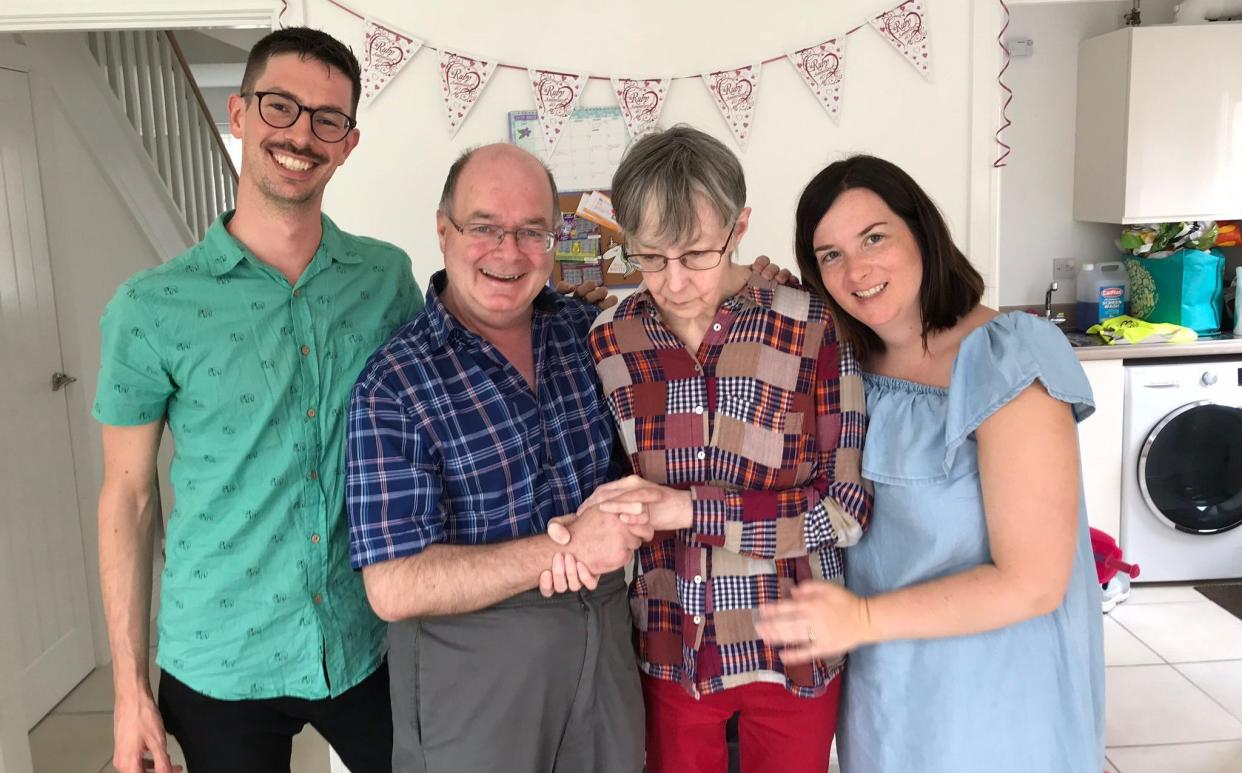The Jennings v Alzheimer’s: a fascinating insight into one woman’s selfless sacrifice

“It’s a risky business, living, isn’t it?” Thirty years ago, Carol Jennings knew there was a chance that for her things could only get worse. Her father had succumbed to Alzheimer’s, as would an uncle and an aunt. There was a 50-50 chance that she had inherited the same mutant gene.
When she died aged 70 two months ago, having for years endured the living death of hereditary dementia, she donated her brain to medical science. Yet, as documented in The Jennings v Alzheimer’s (BBC Two), she had already been donating it for decades. Her son, John, visiting the Dementia Research Centre at UCL, was shown 25 years’ worth of scans, cross-sections which captured the gradual, remorseless evaporation of key parts of her brain.
John and his sister, Emily, were the same age as Emily’s daughter is now when they first appeared on camera as their mother calmly gave insightful interviews about the threat of a mutant gene. She elected then not to have a test to determine if Alzheimer’s was to be her fate (“I can live quite happily with the doubt”), and now John, thoughtfully open about his fears, explained why he has decided not to either.
Instead, Carol turned herself and all of Family 23, as the Dementia Research Centre identified the Jennings, over to researchers looking for a breakthrough. Three decades on, this was a tribute to her selfless foresight as well as a fascinating insight into the Job-like patience of neuro geneticists.
It was also a fine example of television drawing on its own archive to tell the story of Carol then and Carol now. The latter was a white-haired ghost from the future, haunting the intrepid, breezy, curious woman that she had once been. The camera took a long close look at the hollow shell of her face, lips not moving, eyes communicating nothing. Her husband Stuart did his level best not to crack as he let her go into respite care. “Watching Carol go away,” he said, “it’s a large part of me they’re taking.”
The film ended with Carol getting a round of applause as a consultation room was named after her in the Coventry Dementia Partnership Hub. As a drug which can slow the progression of Alzheimer’s comes on the market thanks in part to her, much needed for the disease ripping up the lives of 900,000 Britons and counting, she deserves rather more than a room.

